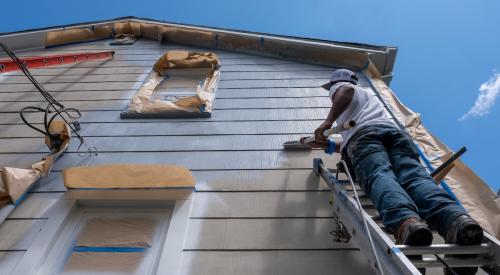If speculative buyers contribute to the formation of pricing bubbles, this is not good news: In the July 14th Wall Street Journal an article by Queena Sook Kim seems to confirm speculation is on the rise in a number of markets.
Some large builders, including KB Home, Standard Pacific and Shea Homes, are instituting policies to stop speculative buying, specif-ically in Arizona, California and Virginia. Builders - large and small - are taking similar action in Nevada and Florida.
In these hot markets, real estate investors are "flipping" houses within months, sometimes weeks, often before the houses are finished. The WSJ story points out that speculative buying in the late 1980s left many builders with gluts of inventory houses.
"Investors will cut and run as soon as prices start to weaken," says Larry Webb, president of Southern California-based John Laing Homes. "If that happens, you wind up trying to sell new homes against price-cutting sellers of your own recently built houses, and reselling houses that buyers walk away from before completion. For that reason, we have extreme measures in place to weed out speculators at all times. Those measures are both contractual and part of our sales process.
"When there are large numbers of speculators in the market, it makes all builder backlogs suspect," Webb says. "Right now, Wall Street believes as much as 30 percent of California sales are investment-driven. It would be naive of me to say we have none, but I believe speculators are less than 5 percent of our sales."
Both Standard Pacific and KB Home now require buyers to commit to live in a home for a year. The WSJ reports that, between last October and April, new and used homes resold within six months surged 83 percent in Ft. Worth, Texas, 66 percent in Harrisburg, Pa., and 54 percent in Chicago - compared to the previous six months.












